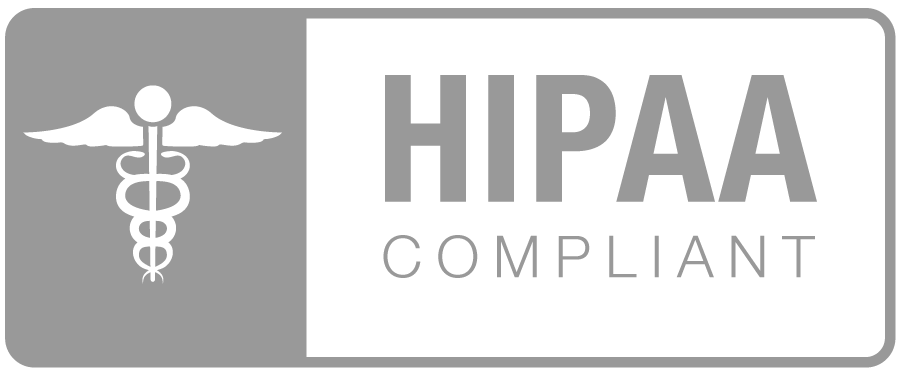I entered the counseling world around the same time that old-school mental health phrases like “self-care,” “boundaries,” and “toxic relationships” were beginning to become available for widespread use in an almost trendy fashion. Phrases only once heard from psychology professors or your personal therapist were suddenly plastered across Instagram and used widely by celebrities and laypeople alike.
While one could argue that this is a great leap for mental health awareness (and I wholeheartedly agree), I find it important to investigate the true meaning behind some of these terms. We need not lose sight of the long-term implications of what self-care, and other therapeutic terminology, truly means.
Most of us can sense that the need for self-care is often quite high. After all, we live in a culture that perpetually upholds busy-ness and exhaustion as badges of honor. But I’m not talking about the “buy yourself some chocolate and watch Hallmark” self-care. I am referring to the kind of self-care that is sustaining and consistent.
If I refuse to listen to the building of my body’s cues telling me I need a break, or a snack, or a hug, I eventually reach breaking point. And if I choose chocolate and television every time I reach the breaking point, I’m no longer practicing self-care. I’m practicing burn-out.
While chocolate and Hallmark-type scenarios have their places, we must use these moments sparingly and begin to view self-care as an ongoing practice, not a last-resort indulgence.
True self-care is different each day. It entails mindfulness and intentionality, but also some self-grace and a few deep breaths here and there.
There are days you propel into the day headfirst with lists and meetings, and days you sit on your couch and consider what is next in life. There are days for celebration and days of struggle. Sometimes, a day holds all of these in one.
Over time, self-care can provide a heightened awareness; you slowly build the emotional and mental capacity needed to make decisions in the moment for your present and future needs. Professionals and scientists often call this “interoceptive awareness” (Craig, 2002).
But the problem with the trendy, instantly-gratifying “treat yourself” version of self-care is that it doesn’t allow room for us to slow down enough to listen to these needs appropriately.
Self-care takes practice. It involves processing daily observations of one’s bodily, emotional, physical, and mental responses, and storing these details to help make future decisions. Our brains, with their amazing neuroplasticity and power to adapt, are actually equipped do this naturally. But in our hurried lives we often spend decades pushing down these cues, stopping for air and awareness only when we are completely spent.
Self-care doesn’t mean that every day is sunshine. Sometimes we must experience situations that are not pleasant. But with proper self-care on either side of these difficult seasons, we are able to return to normal balance at a quicker rate and have vaster knowledge of where to reach for support when we recognize signs that our normal equilibrium is off-kilter. This is actually the marker for interoceptive awareness: that we increasingly learn over time how to regulate, or “bounce back” from stressful or difficult events.
You can make self-care a practice at any time. I’ve collected a few resources below, but as always encourage you to reach out to a professional if you feel you would like a helping hand to re-discover the natural balance of your own life. It is not a quick fix, nor is it always easy. But overall, it is worth it to practice awareness of all your different abilities and strengths. You just might surprise yourself.
Some places to start:
Breathe: A simple place to start is belly breathing and 4-7-8 breathing. Like anything involving self-care, this takes practice. I often compare deep breathing to learning to practicing a sport; we must train our brains to regulate through breathing if we aren’t used to doing so. But once we are accustomed to the practice, we can naturally regulate ourselves through stressful moments without purposefully counting or intentionally focusing on each breath. It makes “game time” (or the really stressful moment) much easier, because the muscle memory is already in place.
Use HeadSpace: an app to assist in practicing meditation and slowing down the body to better listen to its cues.
Move your body: Find movement you enjoy. Try to separate it from weight loss and body image thoughts, and pay attention to the feelings and experiences associated with different kinds of exercise.
Practice Intuitive Eating: Intuitive Eating is a program developed by registered dieticians; it is an evidence-based call to learn to listen to the body’s natural hunger and fullness cues. (by Evelyn Tribole, MS, RD, and Elyse Resch, MS, RD, FADA, CED, RD). Studies indicate that practicing Intuitive Eating can raise your overall interoceptive awareness.
Develop your Faith: if you are part of a faith community, find ways to become involved or seek help and community. Self-awareness includes exploration of your spiritual self and beliefs about humanity.
Community: Step outside of yourself. Interact in-person a couple times a month, even if you identify as an introvert. Take note of your emotional, physical, and mental states surrounding these interactions. Which kinds of people fulfill your need for connection? Which people do not? Answering these questions helps you better learn when and when not to interact in certain environments according to your present energy level.
Participate in an activity you love: Have you ever gotten so lost in something enjoyable you felt untouched by the outside world? For some this is painting, reading, or running. Positive psychology calls this flow, and studies show that it increases happiness and boosts creative brain activity. Watch a clip about it here https://positivepsychologyprogram.com/mihaly-csikszentmihalyi-father-of-flow/
or read about it in Flow: The Psychology of Optimal Experience by Mihaly-Csikszentmihalyi
Do something difficult: Getting lost in the humdrum of our day-to-day routines can extinguish our need for feeling accomplished. What can you try that is new and a little bit scary? How do you feel when you are victorious at a task you’ve been avoiding? (For me this is as simple as cleaning out that garage I’ve been staring at for months. What is it for you that you’ve been avoiding but really want to tackle?)
Monitor your screen time: Your phone even does it for you, now! How often are your mindlessly scrolling, as opposed to bringing awareness to your surroundings and experiences?
Chocolate and Hallmark: Because sometimes, y’all, it is truly the perfect moment for it.
References:
Benson, H., & Stuart, E. M. (1993). Awareness of your body’s feedback. In The Wellness book: The comprehensive guide to maintaining health and treating stress-related illness. New York: Simon & Schuster.
Craig, A. D. (2002). How do you feel? Interoception: The sense of the physiological condition of the body. Nature Reviews Neuroscience, 3(8), 655-666. doi:10.1038/nrn894
Csikszentmihalyi, M. (2009). Flow: The psychology of optimal experience. New York: Harper Row.
Walton, A. (2018, January 17). 7 Ways Meditation Can Actually Change The Brain. Retrieved December 20, 2018, from https://www.forbes.com/sites/alicegwalton/2015/02/09/7-ways-meditation-can-actually-change-the-brain/#29dca5e61465



